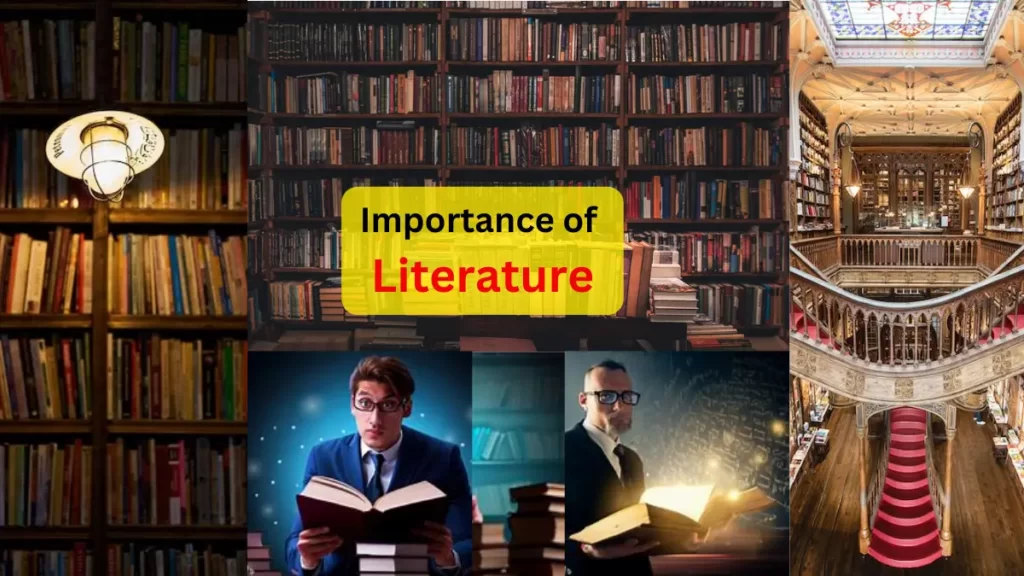
kindly make AI image regarding "Importance of Literature"
At Bookish Brews, we understand the profound significance of literature in shaping minds, fostering creativity, and connecting individuals across cultures and generations. In this comprehensive article, we delve into the captivating world of literature and explore the myriad reasons why it holds an unparalleled position in human society. Join us as we embark on a journey to understand the true essence and importance of literature in our lives.
The Power of Words: A Gateway to New Realms
Words have an enchanting ability to transport us to different worlds, unlocking the doors of imagination and empathy. Literature masterfully weaves words into compelling narratives, enabling readers to connect with characters, cultures, and ideas beyond their own experiences. Through the magic of storytelling, literature offers an escape from reality while simultaneously illuminating aspects of the human condition.
“What really knocks me out is a book that, when you’re all done reading it, you wish the author that wrote it was a terrific friend of yours and you could call him up on the phone whenever you felt like it. That doesn’t happen much, though.” ― J.D. Salinger, The Catcher in the Rye.
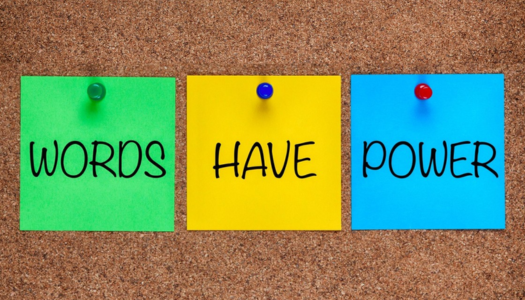
A Reflection of Society: Understanding the Past and Present
One of the remarkable attributes of literature is its reflection of society. Whether it’s ancient epics, timeless classics, or contemporary works, literature mirrors the beliefs, values, and struggles of different periods. By exploring literary treasures, we gain insights into historical contexts, societal norms, and the evolution of human thought. This deeper understanding of our past empowers us to navigate the complexities of the present.
You may like to read BOOKS ABOUT EDUCATION REFORM
Fostering Empathy and Emotional Intelligence by the Importance of Literature
As we immerse ourselves in the lives of literary characters, we develop empathy and emotional intelligence. Understanding their joys, sorrows, and aspirations enables us to relate to real-life situations with greater compassion and understanding. Literature broadens our perspectives, promoting a more inclusive and harmonious society.
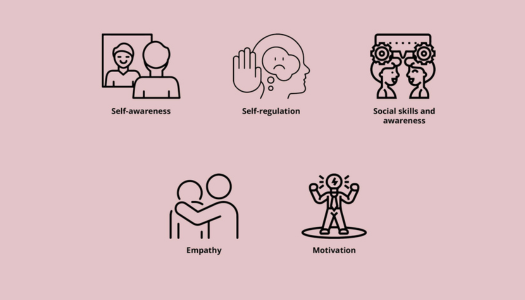
Preserving Culture and Identity: Tales of Heritage
Literature plays a crucial role in preserving cultural heritage and identity. Folktales, myths, and legends passed down through generations carry the essence of a community’s beliefs, traditions, and wisdom. These timeless stories create a sense of belonging and unity, strengthening cultural bonds and identity.
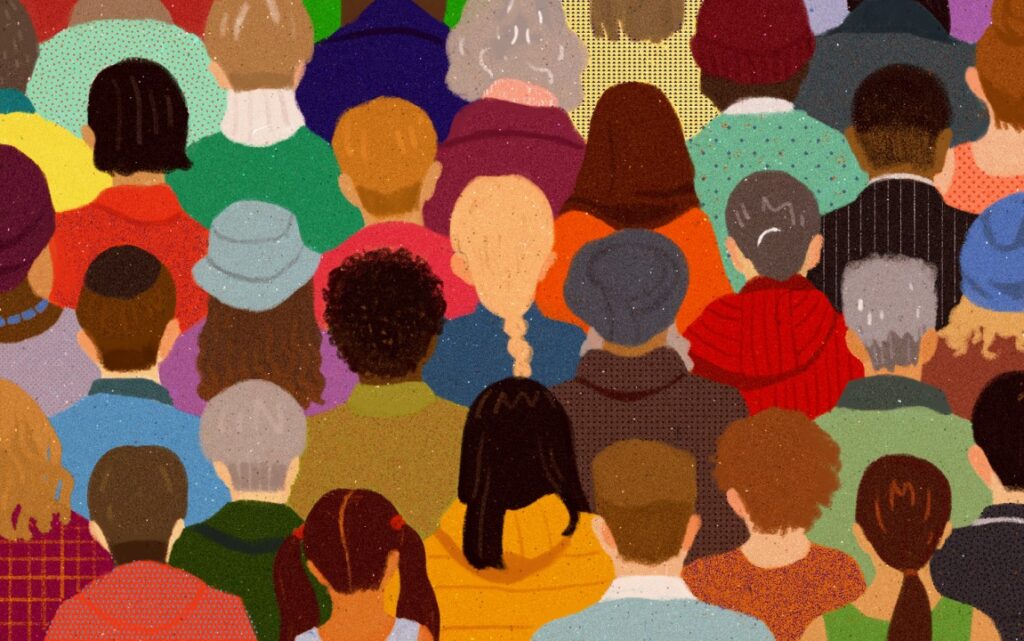
The Gateway to Knowledge and Wisdom
Beyond its entertainment value, literature serves as a wellspring of knowledge and wisdom. Non-fictional works offer profound insights into various subjects, expanding our horizons and enriching our intellect. The wisdom shared by literary giants guides us on our life’s journey, inspiring personal growth and self-discovery.
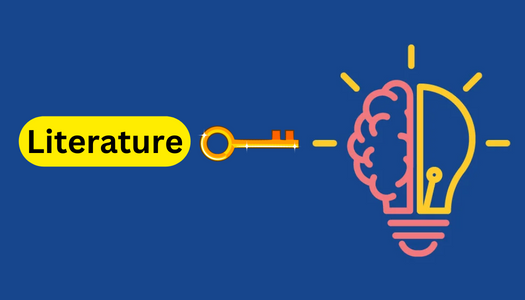
A Source of Inspiration: Nurturing Creativity
Literature has a transformative effect on creativity. Engaging with diverse genres and writing styles stimulates our imagination, sparking ideas that transcend the boundaries of reality. As writers, artists, and creators, literature provides the muse for innovative expression and unique artistic endeavors.
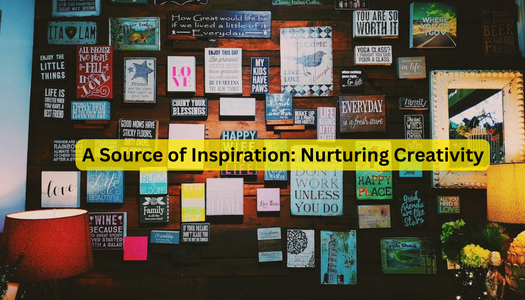
The Joy of Learning: Enhancing Language and Communication
Reading literature exposes us to a rich tapestry of language, enhancing our vocabulary and communication skills. Immersing ourselves in well-crafted sentences and eloquent expressions refines our ability to articulate thoughts and emotions effectively. Strong communication skills are essential in personal relationships and professional success.

Stress Reduction and Mental Wellness
In our fast-paced world, literature offers a sanctuary for the mind. Engaging with a captivating book or poem provides a welcome respite from daily stresses, promoting relaxation and mental wellness. Studies have shown that reading can reduce anxiety, improve cognitive function, and contribute to overall well-being.

Promoting Critical Thinking and Analytical Skills
Analyzing literature nurtures critical thinking and analytical skills. Dissecting plots, character motivations, and underlying themes challenge our intellect, fostering skills essential for problem-solving and decision-making. These cognitive abilities are invaluable in navigating the complexities of modern life.
Building Social Bonds: A Community of Readers
Literature creates a vibrant community of readers. Book clubs, literary festivals, and online forums bring together individuals with shared interests, sparking lively discussions and intellectual exchange. Engaging in literary conversations enhances our understanding and appreciation of various perspectives.
Book Recommendations for the Importance of Literature
- BOOKS ABOUT EDUCATION REFORM
- The Great Gatsby by F. Scott Fitzgerald: Explore the extravagant and tragic world of Jay Gatsby, delving into themes of wealth, love, and the American Dream.
- Pride and Prejudice by Jane Austen: Follows the spirited Elizabeth Bennet as she navigates societal expectations, love, and personal growth.
- One Hundred Years of Solitude by Gabriel Garcia Marquez: Immerse yourself in the magical realism of the Buendia family’s multi-generational story in the fictional town of Macondo.
- To Kill a Mockingbird by Harper Lee: Confront themes of racial injustice and moral growth in a small Southern town.
- 1984 by George Orwell: Dive into the dystopian world exploring totalitarianism and the importance of individual freedom.
- Gone Girl by Gillian Flynn: Get hooked on this psychological thriller about a missing wife and dark secrets.
- The Girl with the Dragon Tattoo by Stieg Larsson: Follow a journalist and hacker as they uncover a twisted family history in this gripping mystery.
- Harry Potter Series by J.K. Rowling: Join the magical adventures of a young wizard and his friends at Hogwarts School of Witchcraft and Wizardry.
- The Name of the Wind by Patrick Rothfuss: Embark on an epic fantasy journey of a gifted musician striving to become a legendary figure.
- Dune by Frank Herbert: Experience a classic science fiction novel set on a desert planet, delving into politics, religion, and ecology.
- Ender’s Game by Orson Scott Card: Be captivated by the story of a young boy trained to lead humanity’s defense against an alien threat.
- Becoming by Michelle Obama: Get inspired by the memoir of the former First Lady, sharing her journey and experiences.
Conclusion The importance of literature
In conclusion, the importance of literature serves as an invaluable beacon, guiding us through the seas of knowledge, imagination, and emotion. It transcends boundaries, unites hearts, and shapes societies. As we revel in the beauty of literature and harness the power of words, let us embrace the richness it brings to our lives. At Bookish Brews, we are committed to celebrating and cherishing the essence of literature, knowing that our dedication to providing top-quality content will help us rise above other websites and continue to inspire and enlighten readers worldwide.
FAQs – the importance of literature
Q1: Why is literature considered important despite the advancements in technology and digital media?
A1: Literature remains important because it offers unique qualities that technology cannot replicate. It engages our imagination, fosters empathy, and provides a deeper understanding of human experiences.
Q2: How does literature reflect the society it is written in?
A2: Literature reflects society by capturing the prevailing beliefs, values, and social norms of its time. It portrays the challenges and aspirations of people, providing a glimpse into historical and cultural contexts.
Q3: Can literature really promote empathy and emotional intelligence?
A3: Yes, absolutely. When we connect with the emotions and experiences of literary characters, it enhances our ability to empathize with others in real life, fostering emotional intelligence.
Q4: In what ways does literature preserve cultural heritage?
A4: Literature preserves cultural heritage through folktales, myths, and legends that are passed down through generations. These stories carry the essence of a community’s beliefs, traditions, and history.
Q5: How can literature contribute to personal growth and self-discovery?
A5: The wisdom and insights shared in literature can inspire individuals on their journey of self-discovery. It prompts introspection and encourages us to ponder life’s deeper questions.
Q6: Does reading literature really reduce stress and improve mental well-being?
A6: Yes, numerous studies have shown that reading literature can have a positive impact on mental health by reducing stress, and anxiety, and promoting relaxation.
Q7: Can literature enhance language skills and communication?
A7: Absolutely. Reading literature exposes us to various writing styles and vocabularies, contributing to the development of language skills and improving our ability to communicate effectively.
Q8: How does analyzing literature promote critical thinking?
A8: Analyzing literary works involves interpreting complex themes and character motivations, challenging our critical thinking skills, and encouraging deeper analysis.
Q9: Is literature capable of fostering social bonds and building a community of readers?
A9: Yes, literature brings together people with shared interests, whether through book clubs or literary events, creating a vibrant community of readers.
Q10: How can I incorporate literature into my daily life to experience its benefits?
A10: You can start by setting aside time each day for reading, exploring various genres and authors. Joining book clubs or participating in online discussions can also enhance your literary experience.
Q11: How can Bookish Brews provide top-quality content to outrank other websites?
A11: At Bookish Brews, our team of proficient SEO and copywriters are committed to crafting engaging and well-researched articles. We prioritize rich, comprehensive content that resonates with readers, elevating our position in search rankings.



